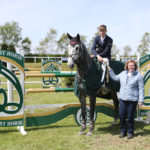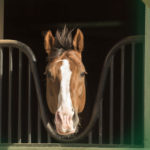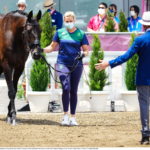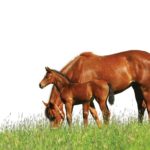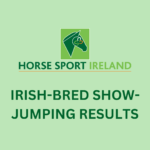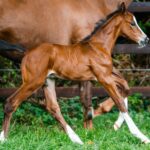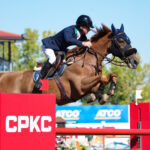EQUINE INFLUENZA UPDATE
- 8 February 2019, 09:50
Horse Sport Ireland, the Governing Body for Equestrian Sport in Ireland, is closely monitoring the situation regarding recent cases of Equine Influenza.
Dermot Forde, National Head Veterinarian, advises that, “while equestrian events in Ireland are to continue as planned at the moment, HSI encourages all horse owners/breeders/livery & competition yards, to rigorously check the vaccination status of their horses and to closely monitor all horses in their care. Owners are advised to liaise closely with their veterinary surgeon for further advice and to allay any concerns they might have.”
To minimise the risk of equine influenza
- Booster vaccination is recommended, in the present circumstances, for horses that have not been vaccinated in the last six months. Your veterinary surgeon will advise you on the most appropriate type of vaccine.
- All horses on a premises should be vaccinated to ensure herd immunity. Unvaccinated infected horses will amplify virus and shed large quantities into the atmosphere. If there is sufficient build-up of virus their vaccinated companions are likely to develop clinical signs.
- Young horses and horses early in their vaccination career, are more susceptible to influenza than older horses that have been vaccinated for many years. Thus, it is advisable to group horses according to risk, for example, yearlings should not be stabled in the same barn as older horses.
- New arrivals or horses returning from equestrian events should be isolated for preferably two weeks but a minimum of one week, during which time their temperature should be monitored daily and veterinary advice sought if influenza is suspected.
Detection of equine influenza and management
- Rapid diagnosis is essential for effective management. Veterinary advice should be sought if a horse spikes a temperature, has a decreased appetite or shows any sign of respiratory disease. A nasopharyngeal swab can then be collected and submitted to the laboratory for virus detection.
- Infected horses need to be rested. The traditional rule is one week of rest for every day of elevated temperature. Failure to rest a horse may exacerbate the disease, increase the likelihood of secondary bacterial infections and prolong the recovery time.
- Whenever possible infected horses should be isolated with designated staff and equipment. The virus is easily transmitted by contaminated objects such as bridles, clothing, twitches and by vehicles. However, it is readily inactivated with most disinfectants provided they are applied to clean surfaces and at the concentration recommended by the manufacturers for influenza viruses.
- Horses from affected premises should not attend equestrian events as they may serve as a source of infection to other horses and jeopardise the continuity of such events.
- The return to work of individual horses and the length of time a premises remains closed should be decided in consultation with the veterinary clinician. Laboratory testing is necessary to monitor virus spread and facilitate risk analysis. The period of recovery and the cessation of virus shedding will depend on many factors including biosecurity, vaccination status and housing. Influenza is a self-limiting disease i.e. the virus does not establish persistent infections and with correct management infected horse should return to full health and performance.
For further information please contact your veterinary surgeon.
- Popular

- Latest









